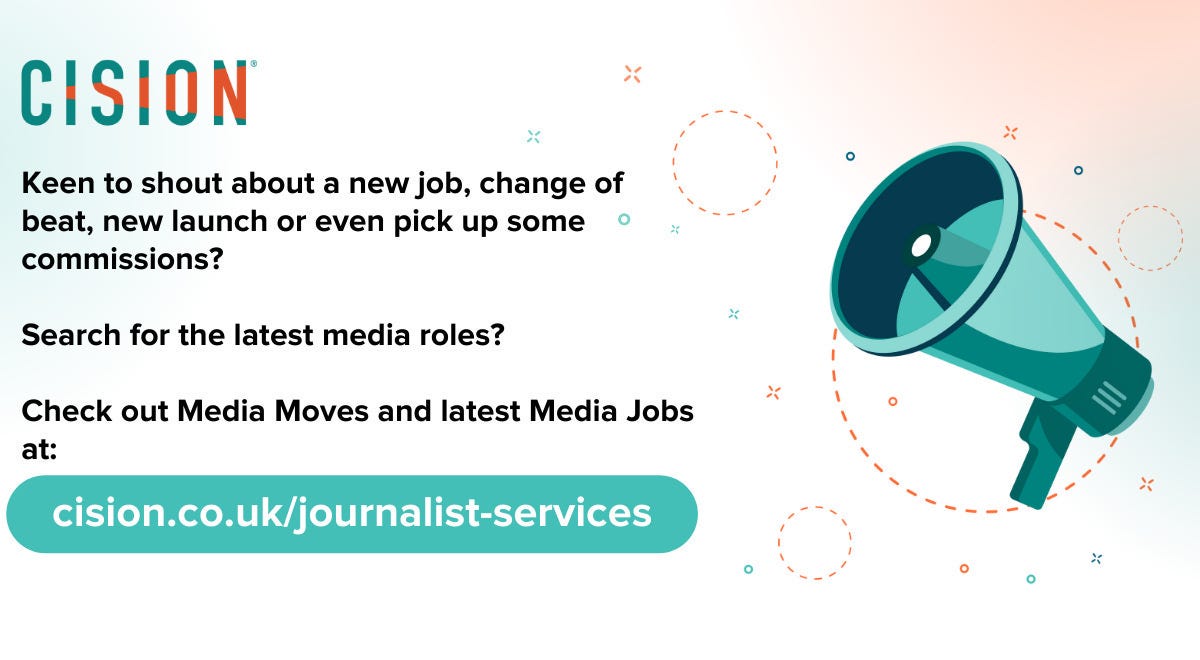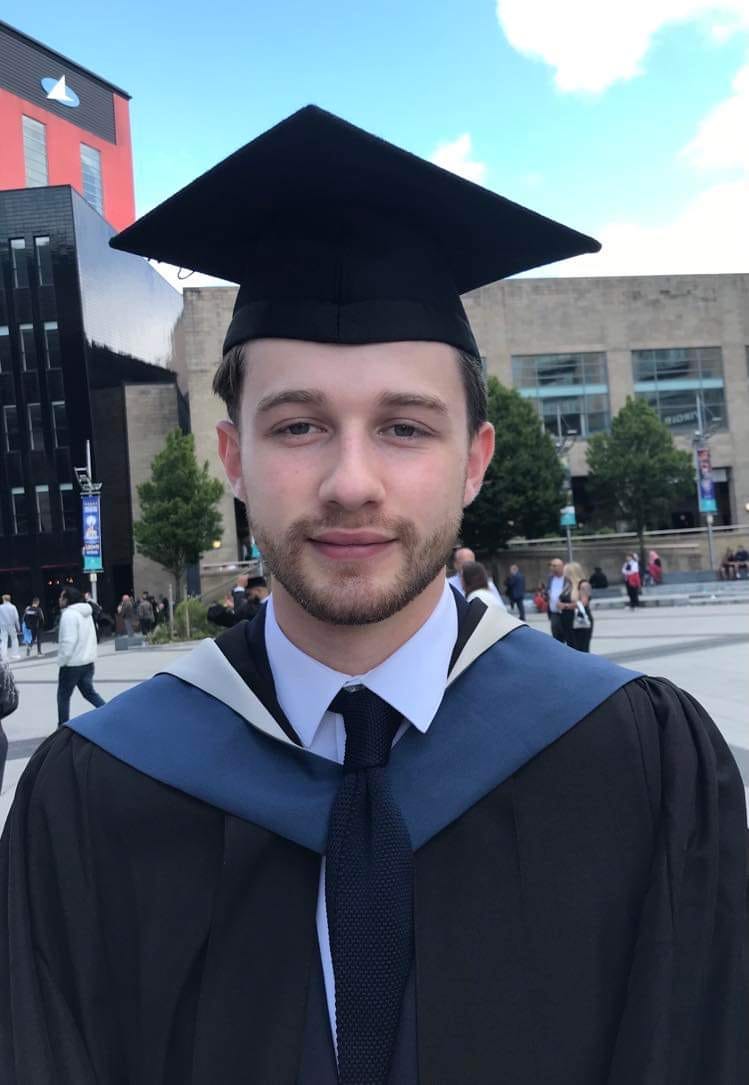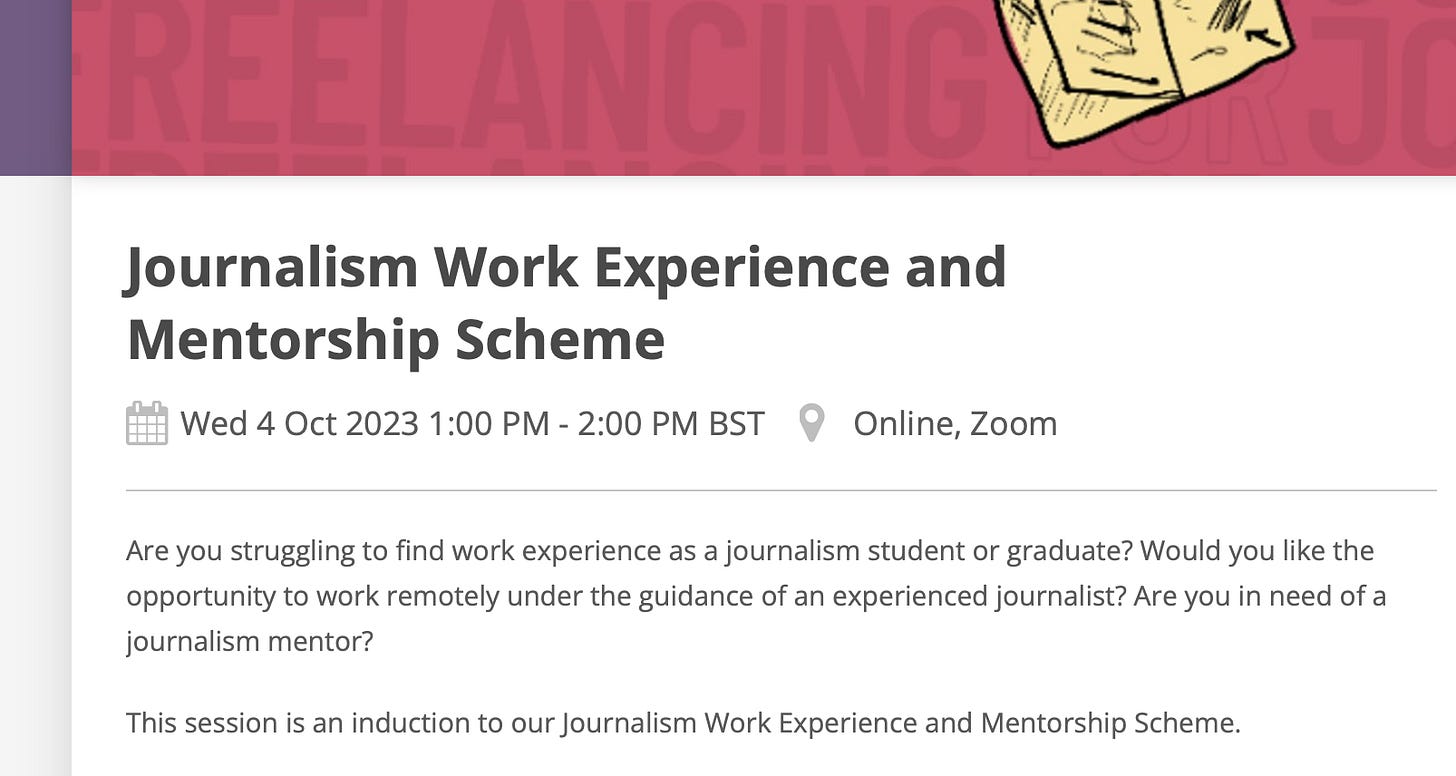Next month we launch our remote journalism work experience scheme. It’s an initiative we are really proud of because we know it has enabled hundreds of people to access an industry that can be incredibly difficult to break into.
But we don’t just want you to take our word for it. So this week Salford University graduate Evan Hurst has written about his experience of the scheme and how it led to paid work.
By Evan Hurst
Are you a journalism student or graduate looking for work experience but are struggling to get any responses? I felt the same last year as I was seemingly sending out endless emails to people in the industry with little to no results. This was until one of my BA Multimedia Journalism lecturers made me aware of Freelancing for Journalists and their work experience scheme. Entry to the scheme is £10 but well worth the price of admission. After an online induction, you are given access to a database of freelance journalists who you can contact. I have an interest in sports journalism so I decided to contact Lily Canter, who specialises in running and fitness. Lily, who also co-runs the scheme and this Substack, agreed to take me on for a month.
The work experience
My first tasks consisted of writing two newsletters for the Freelancing for Journalists website, one on making the most of extra-curricular activities at university and another on the day in the life of a freelance sports journalist. The latter included me interviewing a freelancer for the BBC. These newsletters were posted on this newsletter giving me a few more bylines for my portfolio.
I also helped Lily by providing background research for any articles she was working on. This included doing research on running cadence, where I had to analyse academic research papers. Although a little daunting at first, it was invaluable experience as it demonstrated that I can efficiently gather research on a subject.
My biggest task was writing a piece for Runner’s World on arthritis and exercise. This was a subject I did not have much knowledge on at the time but I was willing to attempt it. The research included a long form interview with a physiotherapist, which I made sure I was prepared for. I had already conducted interviews on my course but felt like I still needed to improve. However, it went well and made me more confident in my interviewing skills, as it lasted about 20 minutes. I also got to learn how to use a new recording tool. After sourcing all the necessary information, I put the article together, sent it to Lily for editing and waited for it to be published. This was the biggest piece of journalism I had done up to this point and it was satisfying to see it published on their website alongside my name. It also showed myself that I could create a long, informative piece of journalism.
Paid work
After this, my time doing work experience for Lily was over as I had to focus on my final year dissertation. However, she offered me paid work once I finished, as I had impressed her with my writing and researching skills. It was satisfying to be recognised as I had worked hard and wanted to do well. Once I finished university, I got back in touch with Lily and have been doing paid work for her since. This has mainly consisted of similar tasks as during the work experience, such as writing newsletters, doing research and sourcing interviews. This has been really rewarding as I have continued to practice and polish my skills whilst looking for a job in the industry.
Overall, getting involved with the scheme was a great decision and I cannot recommend it enough to people who are looking for journalism experience. It allows you to build on the skills you already have whilst gaining others, alongside getting a feel for what a professional work environment is like. There is such a range of different journalists you can contact, meaning there will always be someone who aligns with your favoured subjects to work on. It is a great opportunity and one you should certainly seize.
If you want to find out more about our work experience scheme which launches on October 4 then click on the button below. You don’t have to have any prior experience or be on a journalism course to register.
Please note in previous years this has filled up really quickly so if you want a spot, don’t delay and grab your place. Also, if you’re a journalist interested in offering a remote placement do get in touch, we’re always happy to hear from you!
Triumph of the week
Recording a cracking podcast episode for the next series (watch this space)
That feeling when
You’ve done all your jobs for the day and are able to finish work at 2.30pm
We love to hear your feedback on everything we do, so feel free to drop us an email anytime at freelancingforjournalists@gmail.com
Bye for now!









